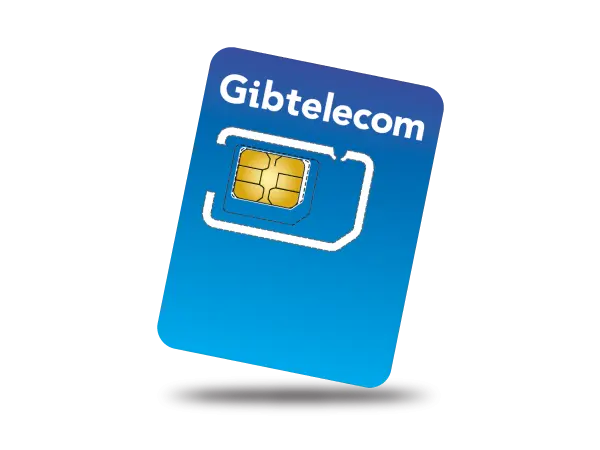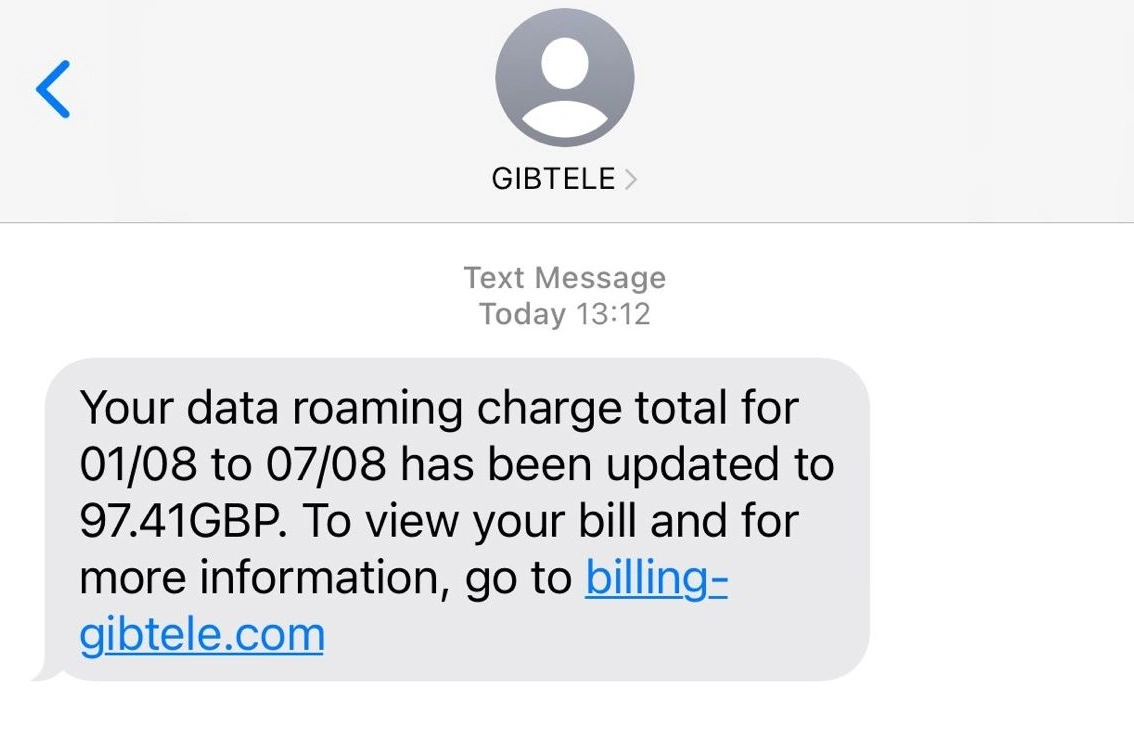
Gibtelecom warns of text message scam over fake roaming charges
Gibtelecom, the telecommunications company of Gibraltar, has warned its customers of a text message scam that is circulating in the region. The scam involves a text message that appears to be from Gibtelecom and warns the recipient that they have exceeded their roaming allowance and that they will be charged high fees if they do not top up their account immediately.
The text message also includes a link that, when clicked, will take the recipient to a fake Gibtelecom website that looks like the real website. However, the fake website is designed to steal the recipient’s personal and financial information.
Gibtelecom has advised its customers to ignore any text messages that they receive from unknown senders, especially if the messages are asking for personal or financial information. Customers should also be wary of any links that they receive in text messages, and they should never click on links unless they are sure that they are from a legitimate source.
If you receive a text message from Gibtelecom that you are unsure about, you can contact Gibtelecom customer service for verification. You can also contact the Gibraltar Police if you believe that you have been the victim of a scam.
Here are some tips to help you avoid being scammed: Gibtelecom text message scam
- Never click on links in text messages from unknown senders.
- Be suspicious of any text messages that ask for personal or financial information.
- If you are unsure about a text message, contact the sender directly to verify its authenticity.
- Keep your software up to date.
- Use strong passwords and change them regularly.
- Be careful what information you share online.
- Be aware of the latest scams.
If you think you have been the victim of a scam, you should report it to the authorities immediately.
Here are some of the most common text message scams:
- Phishing scams: These scams involve sending text messages that appear to be from a legitimate company, such as a bank or credit card company. The text message will often ask the recipient to click on a link or provide personal information, such as their credit card number or Social Security number. Once the scammer has this information, they can use it to steal the recipient’s identity or make unauthorized purchases.
- Vishing scams: These scams involve calling people and pretending to be from a legitimate company, such as a government agency or a utility company. The caller will often say that there is a problem with the recipient’s account and that they need to provide personal information, such as their credit card number or Social Security number, to fix it. Once the scammer has this information, they can use it to steal the recipient’s identity or make unauthorized purchases.
- Smishing scams: These scams involve sending text messages that contain malicious links. When the recipient clicks on the link, they will be taken to a fake website that looks like the real website of a legitimate company. Once the recipient enters their personal information on the fake website, the scammer can steal it.









